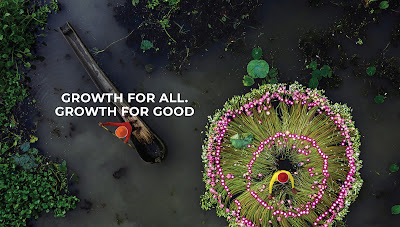SANITIZE YOUR BRAND
A recent research by Accenture reveals that 63% of consumers prefer to purchase from purpose-driven brands, 65% say they prefer brands that treat employees well, 62% support companies that have reduced the use of plastics, are environmentally conscious and adhere to ethical values, and 74% want transparency in how companies source products. It is to be noted that the brand value of companies with a high sense of purpose has increased by almost 175% over the past 12 years.
"Purpose is the reason why a company or a brand exists. It is the underlying essence that makes a brand relevant and necessary to its customers. Purpose sits firmly at the center of a brand's vision and informs every business decision", says Bill Theofilou, Senior Managing Director for Accenture Strategy.
But having a purpose alone doesn't help, the brand also needs to live its purpose. Along with process-purity, the brand also should possess promise-purity. In the two decades of our experience in building responsible and purposeful brands, we have learnt that the avenue to build differentiation, trust, loyalty, and sustainable profits is through communicating the brand's organic essence - the purest and the most natural expression of the brand. The first step towards achieving promise-purity is excavating your brand's ethos to consciously mine its Organic Purpose. It encapsulates the brand's existential essence, just as a tiny seed carries a tall tree within it.
The second step in the progressive journey towards promise-purity would be establishing a positive 'say-do' equation. What is the connection between coffee and plastic? Why should automobile companies make a fuss about carbon footprints? Why do diamond companies certify bloodless products? Today's customer or the 'millennial purposumer' - as we would like to call him or her - would like to associate only with brands that resonate with their viewpoint. Promise-purity achieves its highest gold standard when 'what the brand says is what the brand does'.
History testifies that the companies that have passed the test to achieve this status are the purpose-driven ones. They exist not just to make profits but for a higher purpose. They exist to serve every stakeholder's interests and not just to increase the shareholders' wealth. We think that the best and the most effective way to sustain in the new order is to evolve into a purpose brand and to live the purpose with promise-purity. Incidentally, there is no time better than the present to implement this.
Brand sanitation is a hygiene essential in the viral world of socially empowered netizens. So, in order to stay healthy in today's economy, businesses need to wash their hands of the age-old profit-centric strategies and protect themselves and the society with a socially conscious purpose. And for the record, doing good is good business!

.jpg)


Comments
Post a Comment